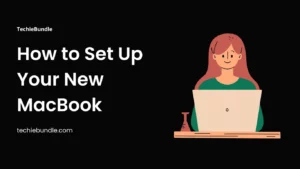5G Is Transforming The Healthcare Industry: The advent of 5G wireless network technology has the potential to transform healthcare with its ability to provide high-quality video on every connected device. From telemedicine, remote surgery and emergency response care to faster transmission of medical reports— every critical component of the existing healthcare ecosystem may change forever.
5G Is Transforming the healthcare as it building an integrated ecosystem for new opportunities in healthcare and other industries through digital innovations such as advancements in telemedicine, the creation of fifth-generation (5G) wireless networks, and artificial intelligence (AI) technologies such as machines A notable opportunity is presented. Digital security capabilities such as learning and deep learning, big data (BD) and supercomputing, Internet of Things (IoT), and blockchain.
What is 5G?
It is the fifth generation of wireless network technology and is an advanced version of the 4th generation. 1G focused on improving voice quality, and 2G did the same, but it also offered consumers the ability to send and receive text messages. 3G was released during the time internet was brought to our phones, and 4G was all about data sharing and faster wireless internet connectivity. With 5G networks, we are promised incredibly fast connectivity, extremely low latency, and widespread coverage.
Democratization of Healthcare
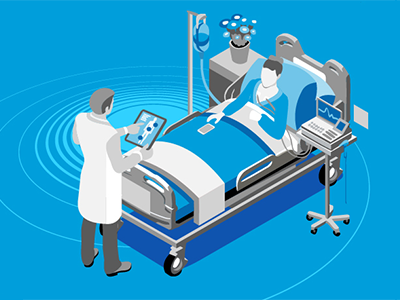
The 5G healthcare model is expected to transform healthcare into a more customer-centric environment focused on providing affordable patient care and services. Introduce your customers to the epicenter of the ecosystem where each stakeholder has a direct impact. In addition, there will be a paradigm shift in how people approach healthcare, as they will opt for preventive healthcare over traditional needs-based approaches. This is made possible by the synergy of data and artificial intelligence (AI) enabled by the widespread deployment of his 5G technology in India.
“When 5G becomes available, healthcare will enable remote monitoring, real-time medical imaging, remote surgery, and medical data management. These methods help doctors better visualize a patient’s condition, avoid guesswork, and make a faster and more accurate diagnosis. In use cases such as B. Connected Ambulance, EMTs use 4K video calls to provide care and enable sharing of patient symptoms, vital signs, and medical records between doctors and ambulance staff. ” said Peeyush Vaish, Partner and Leader of Telecommunications at Deloitte India. Including all these possibilities there are so many more ways through which 5G is transforming the healthcare industry.
5G in Healthcare: The Era of Limitless Possibilities
The expectations from 5G spring from its superior technical attributes compared to 4G. It averages a 2-millisecond latency (or delay) in data transfer in contrast to 4G’s 20-millisecond latency. This difference will make the difference between the experience of virtual healthcare today and post-5G.
What is the need for 5G in healthcare?
AR/VR for the Blind: Those who have poor or zero vision will find it difficult to do day-to-day tasks that are easy for others. With the help of augmented reality (AR) and virtual reality (VR). Headset, or a pair of video streaming glasses, visually challenged people can be connected to a real-time person who will guide them in doing their daily activities.
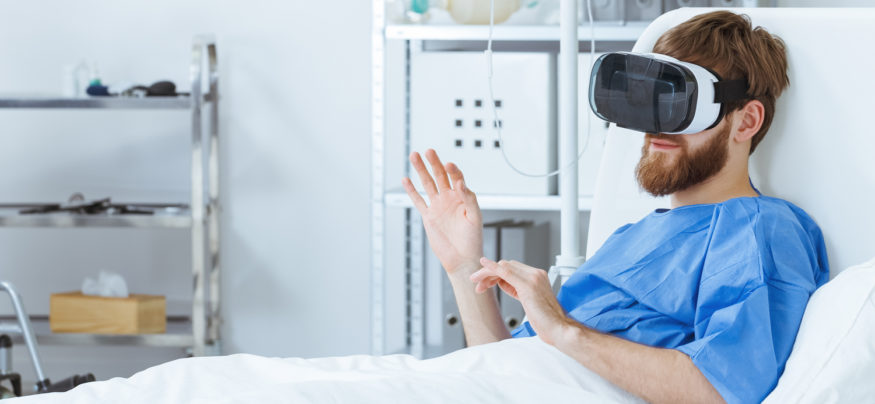
5G helps AR/VR systems to help the visually challenged at scale because:
- 5G’s low latency allows the video to be streamlined in real-time, and it is crucial as a light delay might result in mishaps
- The higher bandwidth that 5G offers allows for higher video quality
- Many of the AR/VR activities will happen seamlessly because of the mobility that 5G offers
Remote Surgery: Until now, existing wireless networks have been unable to operate over long distances due to input/output delays due to low speeds. This delay can be dangerous for the patient. 5G promises to change everything with its ultra-low latency. The time from input from the remote surgeon to action on the operating table is nearly instant.
Real-Time Monitoring: Another way how 5G is transforming the healthcare is real-time monitoring, With the help of IoT devices, healthcare providers can monitor the data of patients to provide timely and personalized care. It also increases patients’ engagement with their own health. One of the biggest obstacles to the success of remote monitoring is the capacity of networks to handle the data. When the connection is unreliable, the healthcare service providers will not be able to make quick decisions.
5G enables real-time remote monitoring because of the following reasons:
- Increased capacity to handle a number of connected devices per square kilometer
- Provides greater reliability and security for the connected devices
- Offers greater mobility
Healthcare Automation: Hospitals can use the applications, data and infrastructure opened up by 5G networks to stay ahead of the competition. Dramatically improve your ability to handle the speed, complexity, and scale of your business operations.
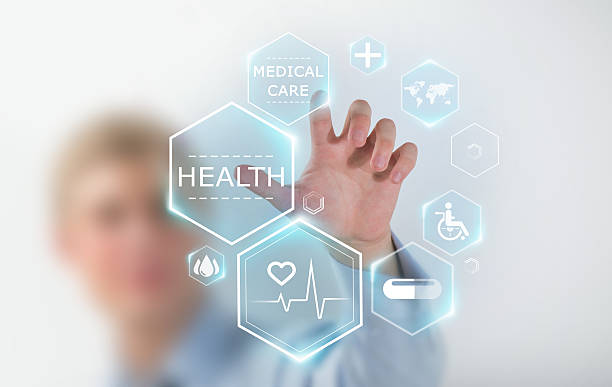
Automation plays a big role in maximizing the value of healthcare. With the help of 5G, hospitals can automate key business processes and workflows. With the help of predictive analytics, potential delays and outages can be detected before they occur, so you can act on them immediately.
Energy Efficiency: Another way how 5G is transforming the healthcare is through Energy efficiency, with its high speed and bandwidth, 5G is capable of transmitting information like prescriptions, diagnostic test results, medical imaging, and other medical reports almost instantly. It can enable high-quality video interactions too.
All of this functionality growth occurs even as 5G, with its low power requirements, lowers the energy use of every connected device. But because 5G broadcasts at higher frequencies, signal degradation poses a bigger problem, necessitating the need for several “base stations” (approximately every 250 m). However, such a deployment offers a rare chance to bring all those technologies locally, in real-time, to the point of care.
Medical Sensors: Wearable devices have seen huge strides in adoption as well as an increase in their use cases. A wearable fitness device can monitor your heart rate, skin temperature, ECG, SpO2, sleep cycle, and even your stress levels. With more such technologies facilitating remote patient care and monitoring, the treatment and experience of the patient improve by a huge margin. Hospitals can even use smartphone cameras to detect melanoma, monitor skin infections, analyze patient injuries, eye problems, etc. Wireless medical sensors can even be used in administering and monitoring medication.
Better security and reliability: We are going digital. Moving to the cloud, many of these will be cloud-enabled and connected to the cloud. This makes it recognizable to cyberattacks where two things can happen. The first, of course, is data security and all your data. And second, and even more important is privacy, which is the patient’s personal information.
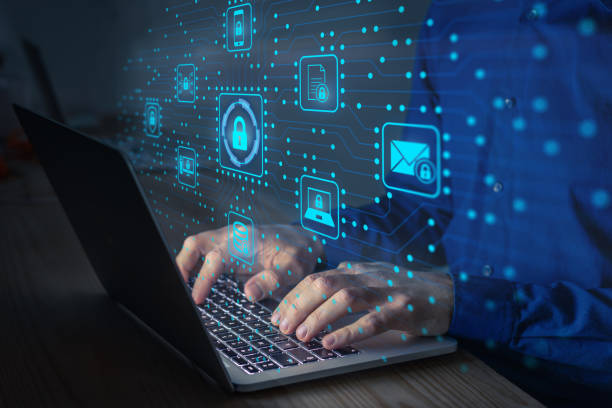
“Cyber-attacks have nothing to do with 5G directly, but many things will happen indirectly with 5G as many new solutions emerge and many people who were not in healthcare are entering healthcare. It is related.” Understanding the Health Act. There is a first draft of our privacy policy that was published some time ago. And more and more things are being built on top of it. It is also subject to the European Data Protection Regulation GDPR and the American Data Protection Regulation (HIPAA). Our recently published guidelines are currently being worked on as a first draft,” said Gaurav Parchani, co-founder and CTO of Dozee, in this way as well we can see how 5G is transforming the healthcare industry.
Conclusion of how 5G is transforming the healthcare
The potential of 5G in healthcare is immense, there are many more applications of this technology. It can improve the quality of care, reduce care costs, offer a better patient experience, and more. As the use of 5G in healthcare increases, we will see a connected healthcare ecosystem taking shape that will change the way we receive care. Ultimately, this paves way for better healthcare for everyone.
Also, read: Hackers exploiting ChatGPT (OpenAI’s Platform) to write malicious codes to steal your data


